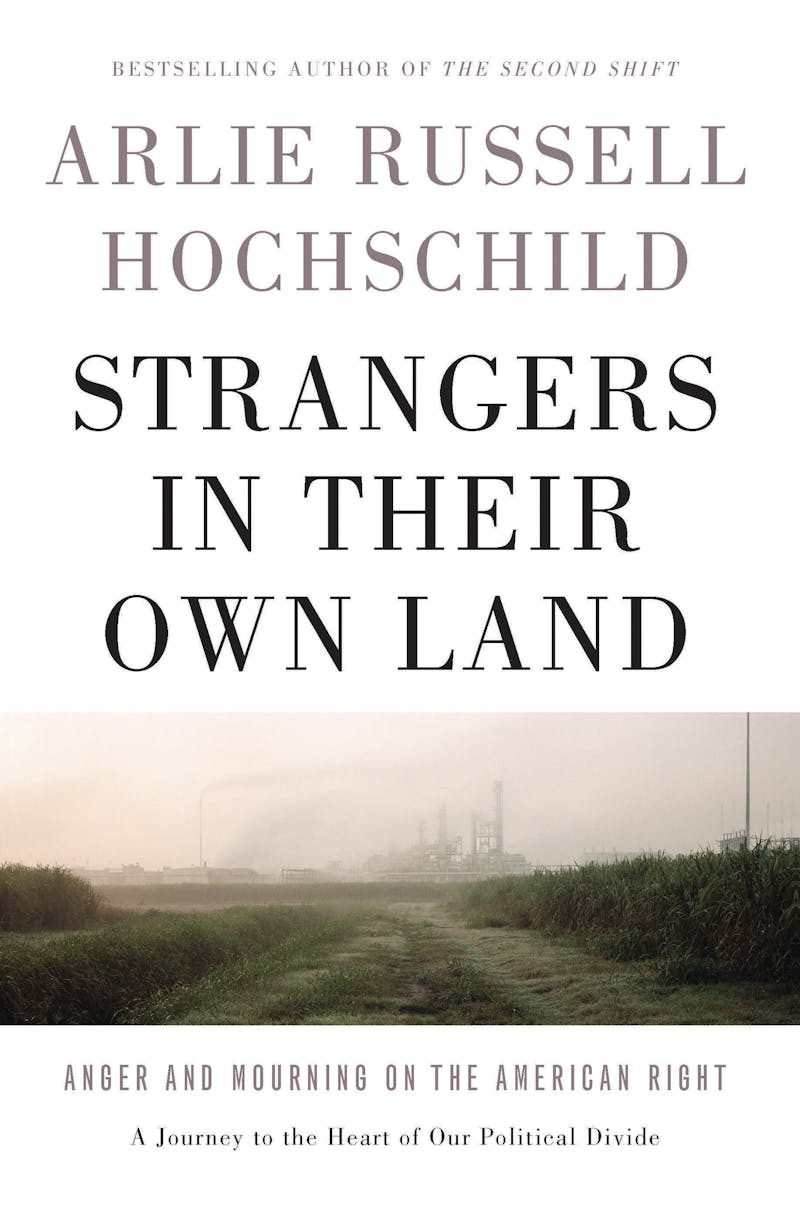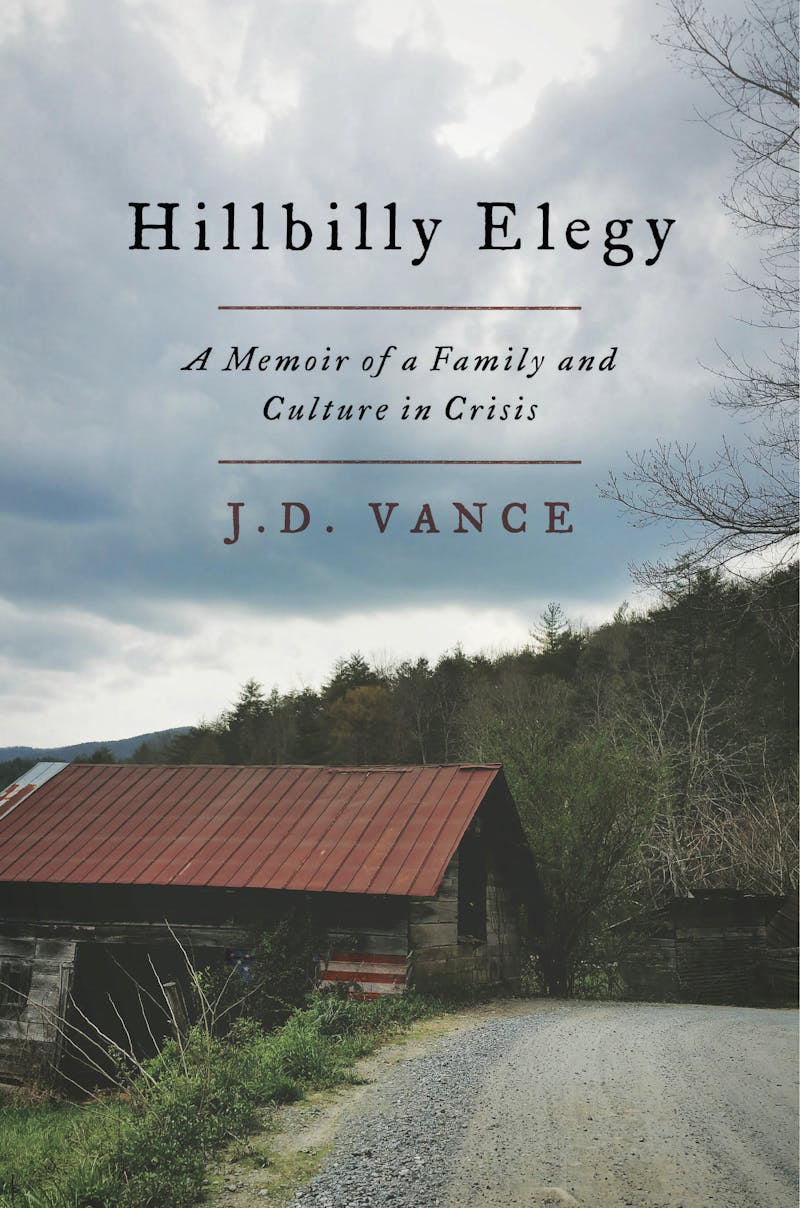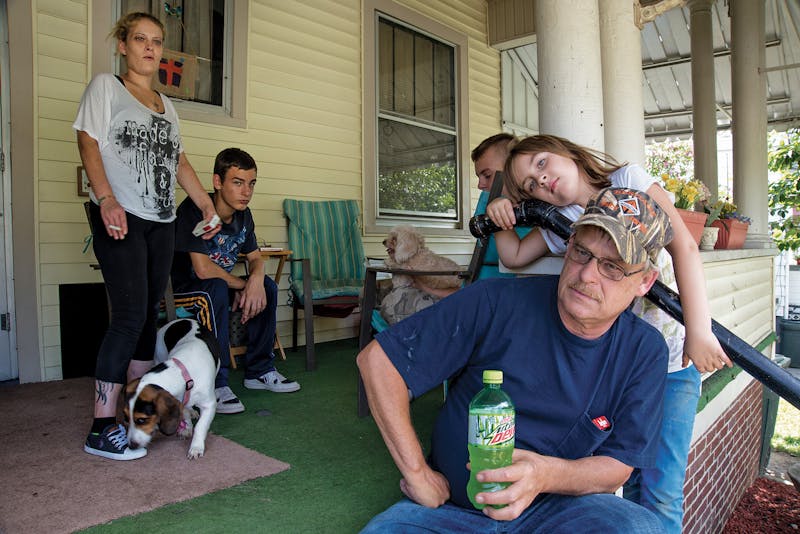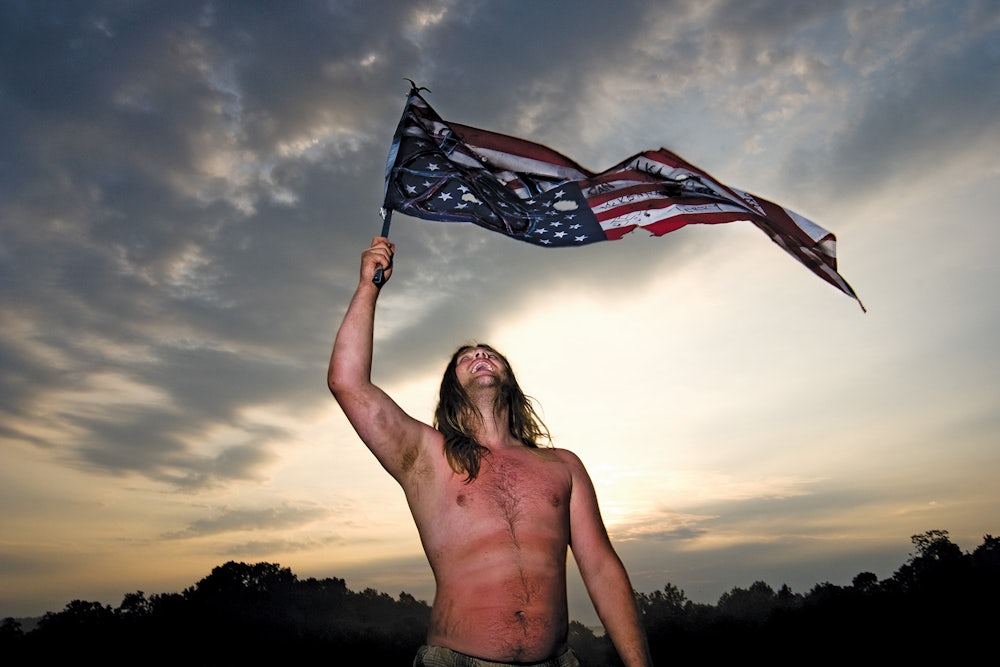In Blue America, from Berkeley and Brooklyn to Durham and Austin, talking about Trump supporters has become an addiction that, like checking your phone, asserts itself in moments of weakness or inattention. Meals begin with promises that this time we will talk about something else. Then, faithful as a bad habit, conversation turns back to troubling questions: Who are these people? What are they thinking?


There’s plenty of cause for worry. Trump claimed the Republican presidential nomination on an identity politics of white, nominally Christian nativism that has not been so explicit in American politics for many decades. Even if his blustering, scattershot campaign flames out in November, as many have expected or hoped, it will be survived by the millions who supported him, many enthusiastically. If they continue to embrace some version of Trump’s nationalism, what will that mean for the shape of the political landscape? For the rest of us, accepting the right’s white identity politics as part of normal life, year in and year out, is a bleak prospect. So is treating perhaps a third of your fellow citizens as beyond the pale of normal politics. Anyone who is not a Trump enthusiast should hope that there is some other way to address his supporters, and for them to understand themselves.
Yet when liberals talk about Trump voters, they are often driven to conjecture and make-believe. The question, “Do you know anybody who is for Trump?” is answered by some variation on: “A few people I know on Facebook, some from high school; maybe my husband’s uncle, but we don’t really talk about it.” And then it’s back to, “Who are these people?” The conversations themselves are symptoms of a country whose political segregation runs through our neighborhoods, workplaces, and social media.
Arlie Russell Hochschild, an eminent left-liberal sociologist, and J.D. Vance, a Republican ex-marine and recent Yale Law School graduate with Appalachian roots, have thrown two rather different bridges over this divide. Hochschild, who lives in Berkeley, must have heard dozens of these tail-chasing conversations. Maybe it was their hermetic quality that inspired her new book, Strangers in Their Own Land: Anger and Mourning on the American Right, a combination of travelogue and sociological analysis that distills several years of visits to rural and small-town Louisiana. There, Hochschild gets to know Tea Party supporters, most of whom become Trump supporters by the end of her research, and works to understand the world view that organizes their politics.
Vance grew up in Rust Belt Ohio, in a family from eastern Kentucky coal country. His memoir, Hillbilly Elegy, must have begun in stories he had to work out during earnest, not entirely comprehending conversations with his New Haven classmates: Where do you come from, J.D.? (Middletown, Ohio, but really we’re from Jackson, Kentucky.) What do your parents do there? (My dad is a sort of off-the-grid Pentecostal who gave me up for adoption when I was a kid. My mom has boyfriends and serial husbands, and works as a nurse when she’s not too strung out on prescription drugs or heroin. My grandmother raised me with a Bible and a gun. What does your dad do in Greenwich?) Hochschild is a cultural interpreter by vocation. Vance has become one out of necessity.
Hochschild is fascinated by how people make sense of their lives, what she calls the “deep story” that locates them in the world. A person’s deep story underlies their sense of what it means to lead a good life; what makes them proud or angry; where they feel at home. Hochschild conveys that she genuinely likes the people she meets, communicating their dignity and values. She doesn’t hide her bafflement at their politics, and she clearly felt comfortable enough with her subjects to argue back gently but persistently, probing for the bedrock of their views.
Her Tea Party friends (as she sometimes describes them) live in a region deeply polluted by petrochemical industries, and some of their most obvious losses and grievances are environmental. One devout Pentecostal Cajun family lives on a poisoned bayou, surrounded by dead forests. They carry memories of their grandparents’ time, when the family lived on the bountiful water and woods, and of their parents’ time, when cows and horses drank from or waded into polluted waterways and died within days.
One elderly informant lost his engineering job after he was doused at work with harmful chemicals that disabled and could have killed him. Born into a Democratic family in the Pacific Northwest, he became an environmentalist after going public with stories of being instructed to dump his factory’s most dangerous by-products into local wetlands, week after week, always in secret. Now in his eighties, he puts up signs for Tea Party candidates. Another Tea Partier lost his home and neighborhood to a sinkhole the size of a subdivision after a risky fracking operation shattered a subterranean mineral formation (which other companies were already using to store toxic waste).

Hochschild asks a question familiar to anyone who has ever wondered what’s the matter with Kansas: How does a Republican Party of big business, whose candidates split over whether to shrink the Environmental Protection Agency or abolish it outright, appeal to these victims of what one can only call environmental injustice?
Here is what she hears: The line for advancement toward the American dream of secure prosperity has grown very long. Sometimes it seems to have stopped moving. And, in front of these hard-working people, newcomers are cutting in line, playing by their own rules to get ahead. Affirmative action, jobs for illegal immigrants, and (in some men’s view) women in the workforce are all moving the goalposts, undercutting what these traditionalist Louisianans feel are lives of working hard, waiting patiently, and playing by the rules. Many of these people don’t trust the companies that have poisoned their home place; but they feel that the federal government, especially under Barack Obama, is on the side of the line-skippers who are changing the rules.
They are equally affronted by people they see as having escaped from the line: not the wealthy (who have simply reached the front), but public-sector workers, whom they see as lazy and overpaid, and welfare recipients. As Hochschild’s informants see it, Obama’s Washington cares more for shirkers and cheaters than for hard-working people. They don’t have much love for Wall Street or multinational corporations, but the free market is the enemy of their enemies. The Democratic Party is their enemies’ best friend.
Hochschild’s people also feel the loss of other, noneconomic sources of honor and dignity. They are proud to think of themselves as rooted people, oriented to family and community, even if they have divorced or moved away. But fidelity and steadfastness, values crystallized in an ideal of traditional marriage, seem to be scorned by a new elite, a cosmopolitan type that can choose its places and its attachments. Members of that elite make a fetish of their admiration and concern for gay people, black people, immigrants—and flaunt their disdain for backward, presumptively racist traditionalists. Again and again, people find ways to tell Hochschild that they aren’t bigots: They just don’t want to be told whom to admire and care for, especially by elites who make no pretense of admiring or even halfway understanding them.
In these attentive, detailed portraits, Hochschild finds the nerve that President Obama touched in two of his most widely reviled remarks—about economically abandoned rural people “clinging” to guns and religion, and that business owners “didn’t build that” by themselves. As usual with comments that cut deep, they were not wild claims or vicious attacks, but more or less straightforward facts, spoken by someone who felt distant and condescending. The president’s remarks expressed an idea shared by FDR and Dwight Eisenhower, that infrastructure and policy form a necessary backdrop to personal freedom and effective action in the modern world. But today they reveal a gulf between Hochschild’s “strangers in their own land” and a new elite, strange to their eyes, that seems unforgivably safe and at home in a land it is making over in its image.
Vance voices some of the same feelings of alienation, speaking not for the subjects of sociological interviews, but for cousins and neighbors. He describes his grandmother, raised an FDR Democrat like most coal country people of her generation, railing against idle, dishonest welfare recipients. In one of his most telling passages, he writes that Obama “feels like an alien” to many people “for reasons that have nothing to do with his skin color.” The president “is brilliant, wealthy, and speaks like a constitutional law professor … he conducts himself with a confidence that comes from knowing that the modern American meritocracy was built for him.” If people claim that Obama is a liar, a crypto-Muslim, an inarticulate, teleprompter-dependent affirmative action baby, that is partly because they know that, in this new world, he is better than they are:
He is a good father while many of us aren’t. He wears suits to his job while we wear overalls, if we’re lucky enough to have a job at all. His wife tells us that we shouldn’t be feeding our children certain foods, and we hate her for it—not because we think she’s wrong, but because we know she’s right.
He laments that “we”—the working-class Appalachian whites that he calls hillbillies—eat Pillsbury for breakfast, Taco Bell for lunch, and McDonald’s for dinner; use high-interest credit cards to buy luxuries they can’t afford; fall fecklessly into and out of sexual relationships; and seem unable to resist alcohol and drugs.
But for all the denunciation, Vance’s preferred pronoun is “we.” He speaks from within the culture he has more than halfway left for the upper echelons of meritocracy. (He now works in venture capital in San Francisco.) Hochschild likes her subjects, is interested in the stories they tell, and sees them as basically capable, admirable people thrown into bewildering circumstances. Vance loves and hates them with the helplessness of so many emotions about home and family. He hates when they hurt themselves and their children; his mother’s drugged-out selfishness and failure to take care of him and his sister, he writes, left him angry enough “to kill.” He hates when unaccountable waves of rage and terror send him running into the streets of Washington, D.C., during a romantic quarrel. He realizes he is acting like his mother, who would flee with her children to hide in a motel for a few days when a relationship went sour, telling no one where she was. But he loves when they make sense, even a rather primitive and violent sense, like his sailor-mouthed, pistol-packing Appalachian grandmother, whose fierce love, he believes, kept him alive and on track for his unheralded successes.

Shortly after he graduates from Yale, Vance is driving back to Middletown, Ohio, to rent a motel room for his mother, who is homeless and has been using heroin. He is finally free enough to feel some sympathy and generosity toward her, and at last he has enough money to help; at the same time, he feels he’s being pulled back to where he least wants to be, but still fears he might belong. Besides its political interest, Vance’s book is a reminder that writing about yourself and the people you love is always an exercise in both loyalty and betrayal; he may have learned that while writing it.
Vance agrees with Hochschild—and, it seems, nearly everyone these days—that traditional American success is getting harder to achieve “in an economy that failed to deliver the most basic promise of the American dream—a steady wage.” But his diagnosis of working-class experience is basically cultural: He sees people whose clannishness, ready violence, and mistrust of outsiders ill prepared them for the modern world, and whose encounters with post-1960s licentiousness and 1980s consumerism have been catastrophic. He places some hope in an updated version of his grandparents’ virtues—faith, hard work, and constancy—with a dash of contemporary emotional self-awareness. But he believes that many of the working-class whites he knows have more or less given up on the system, and on themselves, in a moral failure that is a symptom of cultural failure.
Hillbilly Elegy details bleak experience and describes the fault lines of a divided country, but its tone is resolutely measured, its bottom-line attitude conventionally patriotic. Vance’s treatment of the same themes in occasional writing, however, has been more provocative and contrarian. He wrote in the Times in April that Trump’s rise resulted from Republicans’ failure to admit that the Iraq war “was a terrible mistake imposed on the country by an incompetent president,” and that white working-class voters hate the Republican elite because “the last time Republican voters put a member of that elite in the White House, he sent their children on a bloody misadventure.” He is clearly proud to come from people who can see these facts while his party’s chattering class ignores them. But he is mainly despairing about the Appalachian and Rust Belt world he loves: For people like him, he wrote in the National Review in 2014, “home might be the worst enemy.”
Where do these books leave us? There are, crudely drawn, four or so current theories of Trump and the new New Right. The establishment conservative view, sounded by figures like Andrew Sullivan, Jonathan Rauch, and Leon Wieseltier, is that Trump is the sick consummation of an individualistic, “hyper-democratic” culture that values emotional satisfaction and “authenticity” over facts and reason. One liberal view—expressed at its bluntest on social media, but also in columns by Paul Krugman and Jamelle Bouie—is that his supporters are basically racist and otherwise-bigoted hicks, whom the Republican Party has been feeding on the sly for decades, and who are now out of their cages. A more polite version of this take sees Trump’s success as a response to the declining status of working-class, rural, and small-town whites in a demographically and culturally changing world, a last grab at a nostalgic America where, even if they are not bigots, they feel they once belonged. A final view, more congenial to the Sanders and Jacobin left, is that while Trump himself is a repugnant charlatan, his supporters seek in him a salve for the real economic problems of blue-collar displacement and the bait-and-switch promises of the American dream.
Hochschild tends toward views three and four (status conflict and economic displacement) while Vance gives a gritty, hillbilly-specific version of view one (cultural self-immolation). But the virtue of these strongly felt, experience-rich interpretations of a divided America turns out to be their vice as well: One cannot really adjudicate among competing theories based on intimate portraits of personal life, in which many things are true at once. The theories become just different ways of talking about the same thing. Working-class wages are stagnating, jobs are harder to come by—and people make bad decisions, sometimes unremittingly, like many members of Vance’s family. Traditional virtues get derided as heteronormative small-mindedness—and many people are not dealing well with a black president.
Still, some general lessons come through here, not all of them intended. One is grounded in a modern version of tribalism: People will stand for a great deal from an institution they believe is basically well-intentioned and on the side of people like them. By the same token, you can get almost nothing out of people who believe the opposite. Hochschild’s Tea Partiers grudgingly admit that they appreciate federal highways and Coast Guard protection, but even the ones who have been environmental activists will credit the EPA with hardly anything, and forgive private industry nearly everything. J.D. Vance loves the Marine Corps, which subjected him to a great deal of one-size-fits-all sadism and sent him to Iraq (as a public relations officer), with the same loyalty he has for his grandmother, who usually shows up in his stories armed and threatening to shoot someone.
Another lesson is that the meaning of identity politics has changed. When it emerged, mainly in arguments on the left between those who focused on redistributing material goods and those who emphasized cultural standing and “recognition,” it automatically referred to the identities of historically marginal groups, who were symbolically as well as materially disadvantaged. Now there is a white, Christian, nativist identity politics, espoused by people who, as both Vance and Hochschild note, regard themselves as members of an aggrieved minority, hence “strangers in their own land.”
Despite their best intentions, both Hochschild’s and Vance’s books suggest that identity, feeling, and personal narrative—the currency of so much public discourse these days—offer incomplete and often counterproductive keys to politics. Hochschild pays respectful attention to the moral and emotional “deep stories” of Tea Partiers whom she comes to regard as friends. Then she ends her book, after a plea for mutual understanding, with an appendix noting all the ways her new friends are wrong—about the size of government, the cost of welfare, the reproductive behavior of black people, and the relationship between jobs and pollution, among others. She proposes, in effect, a détente by which liberals would admit that Tea Party activists are human beings with feelings and personal virtues, and conservatives would admit that liberals are right about the substance of the issues. She is bracingly honest to end this way: Understanding where the other side is coming from may be invaluable, but it is only a first step. Politics is ultimately about disagreement over substance, which is distinct from either dissonant identities or harmonious ones.
Our identity-oriented, feeling-driven politics is especially vexed because everyone today knows what others are saying about them. Talk radio and the partisan internet have created a series of spaces where people spill out political and cultural impatience and disdain, and signal their own versions of virtue, often to cathartic applause. But these spaces only feel private: They are public, or at least leaky, and the worst, most ill-considered posts soon get shared in other rooms. In a world of physical segregation by class and subculture, there has never been so much opportunity to feel insulted by people one does not know, but who come to feel like intimate enemies. Hochschild argues convincingly that Trump’s rallies are basically festivals of self-assertion for people who spend much of their time feeling like embattled strangers, but, together, feel at home in their common outrage. These rallies mimic in real space much of our less visible activity, where, it can seem, we are always preparing for battle.
All of this is happening in a time when realities people cannot see directly—global capital flows, changing manufacturing technologies, geopolitical earthquakes, and the tectonics of inequality in wealth and income—are violently shifting the landscapes where their “deep stories” and everyday efforts play out. The factory job that gave Vance’s beloved grandfather a middle-class income while he drank and fought in the evenings no longer exists in Middletown. Vance’s desultory attention to high school, which would have been an economic death sentence for him without some extraordinary lucky breaks, was the norm for factory-bound kids not so long ago. This economy offers no clear path toward making a secure and dignified life out of the ways many people are raised to live, to seek pleasure and respect. At the same time, it holds up the cultural habits of second- and third-generation liberal meritocrats as the keys to economic success and high moral status. Wouldn’t you feel you had been set up, too, if you realized too late that you were on the wrong side of this story? It may be imprecise or even irresponsible to say that such a system is “rigged,” but to say so is also natural.
Where I grew up in Appalachia, local people would sometimes say, about nearly anything ongoing, “It’ll get worse before it gets better.” Sometimes they sounded mournfully pleased by their own realism. Nothing in these admirable books suggests that they would be wrong today.
